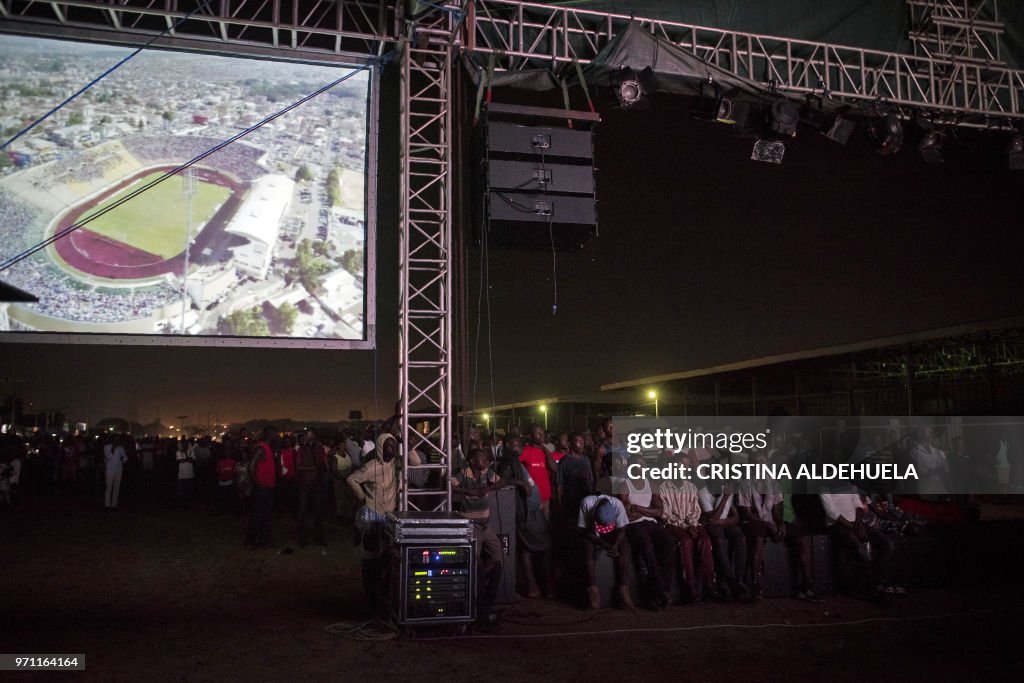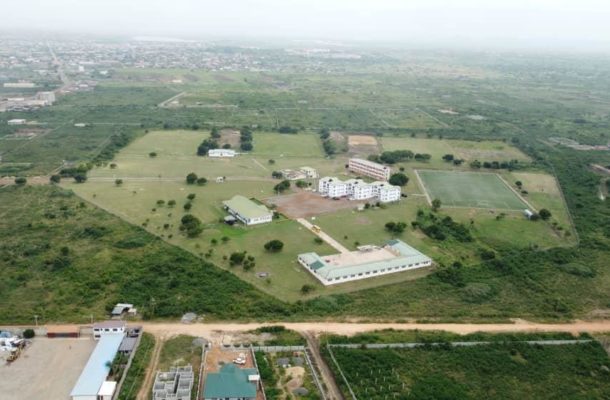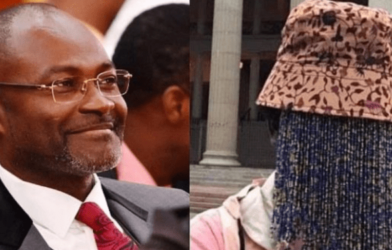The name Kwesi Nyantakyi elicits mixed emotions in Ghanaian football circles.
Once hailed as a transformational leader and the architect of Ghana’s football revival, his reputation suffered a significant blow in the wake of Investigative Journalist Anas Aremeyaw Anas’ Number 12 exposé.
The investigative documentary, which unveiled corruption and malpractice within Ghana’s football administration, led to Nyantakyi’s ban from all football-related activities and marked the end of his career as an influential figure in the sport.
However, the years following his departure showed that Nyantakyi was a capable steward.

Kwesi Nyantakyi’s tenure from 2005 to 2018 was undoubtedly a golden era for Ghana football.
He made Ghana a force to reckon with not only on African soil but also on the global stage.
Without a FIFA World Cup experience, Ghana qualified for three consecutive tournaments in 2006, 2010, and 2014 under Nyantakyi.
The 2010 World Cup in South Africa was particularly historic, with Ghana reaching the quarter-finals and coming very close to being the first African nation to make it to the semi-finals.
Nyantakyi prioritised youth development, a strategy that culminated in the success of the U-20 team, the Black Satellites, at the FIFA U-20 World Cup in 2009.
Beyond nurturing talent, Nyantakyi spearheaded critical infrastructural projects such as the Ghanaman Soccer Centre of Excellence in Prampram.

This facility became a hub for training and talent development, offering young players access to modern resources and world-class coaching.
Nyantakyi’s tenure was also marked by significant progress in women’s football both at home and on the global stage. He prioritized its development, leading to remarkable achievements.
The Black Queens consistently qualified for the African Women’s Championship and made appearances at the FIFA Women’s World Cup.
Under his leadership, the Black Maidens became the first African side to reach the semi-finals of the FIFA U-17 Women’s World Cup in 2012, eventually clinching the bronze medal.

The Black Princesses regularly qualified for the FIFA U-20 Women’s World Cup, further showcasing the depth of talent in Ghana’s women’s football.
During Nyantakyi’s time, the Ghana Premier League attracted sponsorship deals and saw an era of competitive football.
Clubs like Asante Kotoko and Hearts of Oak regularly competed on the continental stage and made an impact.
Nyantakyi played prominent roles in CAF and FIFA, serving as a Vice President at CAF and a member of FIFA’s Executive Council.
Nyantakyi’s influence extended beyond Ghana’s borders. In addition to leading the GFA, he served as the President of the West African Football Union (WAFU) Zone B, where he spearheaded efforts to unite and develop football across the sub-region.
Watch live soccer online

His leadership helped WAFU gain prominence, with the now-inactive WAFU Cup of Nations becoming a respected tournament under his watch.
His leadership ensured that Ghana had a strong voice in global football governance.
And his influence helped secure resources and opportunities for Ghanaian football development.
The aftermath of the Number 12 exposé and Nyantakyi’s subsequent ban has been disastrous for Ghana football. While the exposé prompted necessary conversations about transparency and accountability, the aftermath of his removal has exposed deeper systemic issues.
The promise of a fresh start under new leadership has instead been marked by failures, both domestically and at the international level.
Since Nyantakyi’s departure, Ghana football has been on a downward spiral.
The Black Stars failed to qualify for the 2018 FIFA World Cup and delivered a disappointing group-stage exit at the 2022 edition.
The team have also struggled in subsequent African Cup of Nations (AFCON) tournaments, failing to reach the semi-finals since 2017.
The ultimate low came when Ghana, for the first time in 20 years, failed to qualify for AFCON 2025, to be held in Morocco.

Ghana’s youth teams have failed to replicate their past successes, and domestic club football has declined in quality and appeal, with a significant loss of sponsorship and fan interest.
The GFA has faced criticism for poor administration and a lack of clear direction under Nyantakyi’s successor, Kurt Okraku.
Many believed Kwesi Nyantakyi’s exit would mark the end of troubles associated with Ghana football, but the tenure of Kurt Okraku has revealed otherwise.
While Okraku campaigned on a platform of reforms and transparency, his administration has faced its share of criticism for failing to address the root causes of Ghana football’s struggles.
Under Okraku, the Black Stars have remained inconsistent, and the Premier League has continued to suffer from low attendance, limited sponsorship, and declining quality.

These challenges suggest that Ghana football’s problems run far deeper than the actions of one man.
Kwesi Nyantakyi’s story is a paradox.
On the one hand, his tenure brought Ghana football to unprecedented heights; on the other, his downfall exposed cracks in the system that were left unaddressed.
The years since his departure have demonstrated that while Nyantakyi was not perfect, his leadership brought a level of vision and competence that has been sorely missed.
Transparency, accountability, and long-term development plans must take precedence to revive Ghana football.
Nyantakyi’s achievements provide a blueprint for what is possible, but his failures are a cautionary tale about the importance of ethical leadership.
The recent failure to qualify for AFCON 2025 should serve as a wake-up call, prompting urgent reforms to restore Ghana’s football glory.
Kwesi Nyantakyi’s tenure was not without flaws, but his achievements remain unparalleled.
The decline since his departure underscores just how critical his leadership was.
His vision and accomplishments should inspire the next generation of leaders to lead Ghana football back to greatness.







